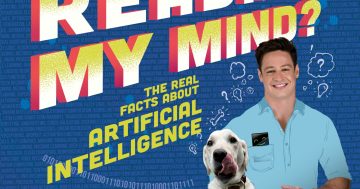Jill Whalen* says everyone will get along better once we understand that disagreements stem not from someone’s ignorance or obstinacy but because we all have different backgrounds and realities.
 We all know and use the phrase ‘let’s agree to disagree’.
We all know and use the phrase ‘let’s agree to disagree’.
It gets pulled out when we’re getting nowhere in an argument or discussion.
From our point of view, the other person is simply not listening well, or isn’t very intelligent, or just doesn’t get the facts of the situation.
Obviously if they did, they would agree with us.
So rather than cause a scene or escalate the situation, we agree to disagree.
But inside, we know we are right.
Meanwhile, the other person is thinking exactly the same.
What’s really going on here?
It’s highly likely that both parties are ‘right’ at the same time, yet how can that be true?
It’s easily explained when we realise we live in separate realities.
While this may sound weird for those who haven’t heard it before, it’s the way the world works.
Once we wrap our head around it, it makes a ton of sense.
Plus, it explains a hell of a lot about life, people and relationships that we may have been confused about before.
So it’s worth sticking with me and hearing me out.
Here’s how this whole separate realities thing works:
We all live unique lives. We have different families, upbringings, personalities, likes, dislikes, genetic traits, and education, etc.
Everything that has ever happened to us or been said to us gets stored away in our unconscious.
This one-of-a-kind mixture that psychology might call ‘conditioning’ becomes part of our general knowledge and overall belief system.
In turn, it’s this unconscious belief system (which we barely know we have) that creates our sense of self and how we see the world.
This is why no two people — even identical twins — are exactly alike.
We all have individual experiences that stick with us one way or another without us even knowing it.
All of which gives way to our very own individual thought system that we think of, and label as, ‘me, myself and I’.
Our unique ‘me thoughts’ flow through our brain every moment of each day.
It’s this system that makes up our sense of self, as well as what I’m calling ‘our reality’.
Along with our separate reality, there is also a shared one.
Plenty of our personal reality overlaps with others, which explains why we enjoy hanging out with those who agree with us.
We love spending time with people who have similar beliefs to ours, because it feels like they share our reality.
However, even among those who have similar ideologies to ours, we can still bump up against separate realities.
For instance, have you ever noticed that within any industry, political party, religion, or other organisation there’s always some form of in-fighting?
It’s all explainable by the fact that each individual within those groups has their own unique, sense of self giving way to their separate reality.
So while they may agree with each other on the main theme of their group, cliques within the groups almost always are formed.
Knowing that separate realities exist is a game-changer.
It explains all of the discord that goes on in relationships, families, friendships, communities, countries and life in general.
Because we live in separate realities, even simple matters can and do create disagreement.
What happens is we hold onto our particular belief system as if it were some sort of truth.
We assume that what we like to do, eat, work on, play with, vote for, whatever is what everyone would want.
We absolutely cannot fathom how it could be any different.
Sometimes more importantly, we can’t imagine how we could be any different.
Our reality is our reality, after all.
Not necessarily — which is the best news you’ll hear today.
Because our reality is formed from our conditioned belief system, it’s subject to change.
In fact, it’s changing all the time, we just don’t realise it.
Just look at what you used to like to eat, say 10 or 15 years ago compared to what you eat now.
Has it evolved? More likely than not.
In truth, our sense of self, our beliefs and our overall way of life can (and does) change.
While it often changes gradually, it can also change in an instant.
At any time, we can be hit with an insight that completely changes our reality.
Which means that what we once thought of as reality suddenly isn’t so real anymore.
Knowing this leads to a much greater understanding and empathy for the way other people think and live their lives.
Suddenly, there’s no longer a need to agree to disagree.
In fact, our seeing that no one particular reality is any truer than another helps us to be curious about the way others see the world.
So rather than deciding to simply agree to disagree, we may become interested in hearing more about how our friends, family and colleagues see things.
In that open curiosity, we may even learn something we never knew or thought about before.
Leading to expanding our own reality and ideas of the world.
How cool is that?
*Jill Whalen helps individuals, groups and organisations uncover their well-being and happiness to operate from a clearer state of mind. She can be contacted at jill.consulting.
This article first appeared on Jill’s blogsite.











